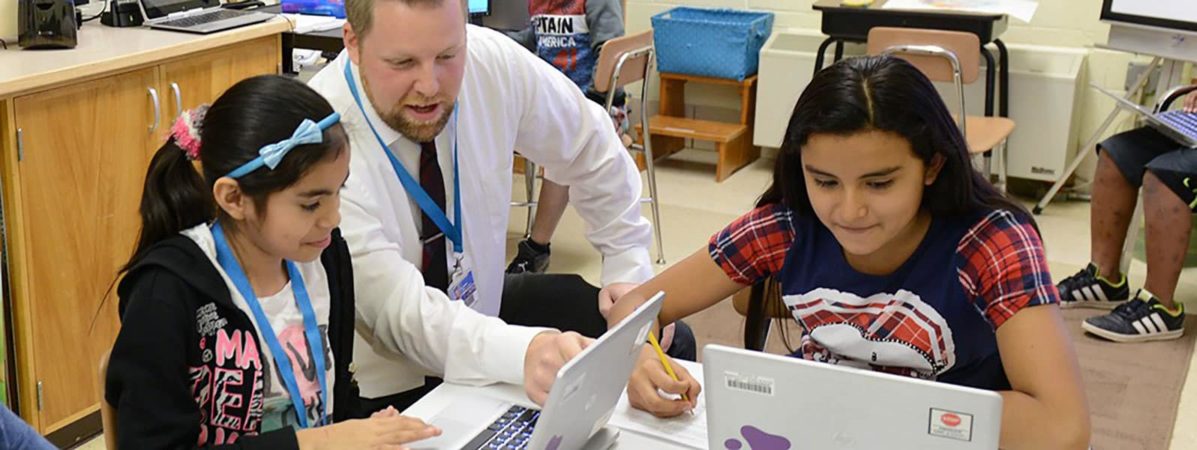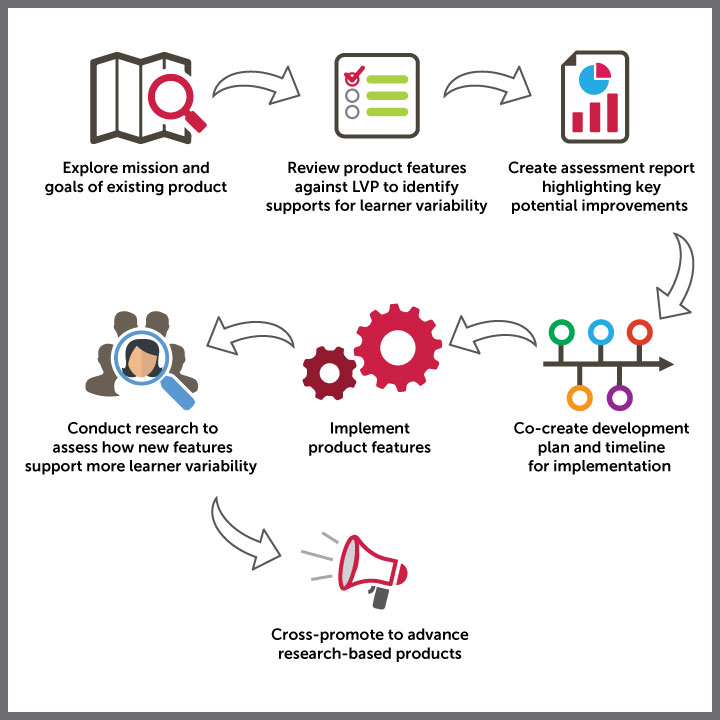
March 14, 2018 | By Medha Tare, Susanne Nobles and Wendy Xiao
Education technology and innovation continue to evolve, making it easier for teachers to harness the power of technology to improve education outcomes for learners. At the same time, a growing field of learning sciences research offers more precise knowledge of how learners learn. Still, not enough edtech entrepreneurs use research to inform how their products can reach the full diversity of learners because of how labor intensive it can be to find, collect, and analyze quality research. Digital Promise Global’s Learner Variability Project (LVP) initiative is the conduit to unite products with research through partnerships with edtech companies.
In our latest report, we chronicle LVP’s partnership with ReadWorks, a nonprofit that leverages learning sciences research in support of its mission to help address gaps in students’ reading achievement.
ReadWorks provides free resources to K-12 teachers, including a library of curated nonfiction and literary articles, reading comprehension and vocabulary lessons, formative assessments, and teacher resources.
 Following LVP’s Partnership Cycle, the collaboration began with an exploration of the mission and goals of ReadWorks. An assessment report was produced, based on the LVP Reading PK-3 model, that included recommendations of factors based on learning sciences to consider and strategies to potentially develop as part of ReadWorks’ digital platform. Together, the teams created an implementation timeline for short-, medium-, and long-term phases of development, to fully achieve the product mission.
Following LVP’s Partnership Cycle, the collaboration began with an exploration of the mission and goals of ReadWorks. An assessment report was produced, based on the LVP Reading PK-3 model, that included recommendations of factors based on learning sciences to consider and strategies to potentially develop as part of ReadWorks’ digital platform. Together, the teams created an implementation timeline for short-, medium-, and long-term phases of development, to fully achieve the product mission.
We also conducted teacher interviews to understand if and how the new features were addressing learner variability in the short-term. For example, LVP suggested ReadWorks include an audio version for each article in their collection of reading material in order to make the information available to every learner. Teachers reported that the audio feature allowed all learners, whether or not they could decode quickly, to access knowledge. Subsequently, more students were engaged and confident to participate in classroom discussions.
After implementing other agreed-upon features that improve accessibility, the teams plan to document the impact of the partnership by examining trends from over two million Pre-K through third grade students who are completing assignments using the ReadWorks platform.
Ultimately, we uncovered three key takeaways from our partnership work with ReadWorks:
To read more about how the LVP-ReadWorks partnership worked and teachers’ reactions to the product improvements, read the full case study here.
If you are interested in learning more about becoming a partner with LVP, click here.
By Lauren McMahon and Heather Dowd